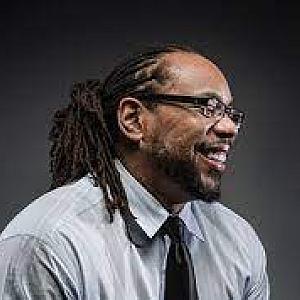


James E. Causey is an award-winning special projects reporter for the Milwaukee Journal Sentinel and a 2023 Senior Fellow for the Center for Health Journalism’s National Fellowship. He has spent more than 30 years as a professional journalist since becoming the first African-American high school intern at the Milwaukee Sentinel at age 15. He worked for the paper every summer through high school and worked as a night cops’ reporter while studying journalism at Marquette University, from which he earned his bachelor’s degree, followed by a master of business administration degree from Cardinal Stritch University. In 2008, he was a Nieman Fellow at Harvard University, where he studied the effects of hip-hop music on urban youth. On his return to the Milwaukee Journal Sentinel, he joined the editorial board as a columnist until October 2014, when he was promoted to engagement editor. He is an active member of the National Association of Black Journalists (NABJ), former president of the Wisconsin Black Media Association and a member of Phi Beta Sigma Inc. He was also named the 2013 Morse-Marshall alumni of the year and a Scripps Howard Award finalist in 2013. In 2018, he received an NABJ award for his work on the Milwaukee Journal Sentinel special project, “50-Year-Ache.” He was a 2018 Center for Health Journalism National Fellow and grantee of the Dennis A. Hunt Fund for Health Journalism. He received several national awards for his Fellowship project, “Cultivating a Community,” including a first place award from the Society of Features Journalism. He was a 2019-2020 Marquette O’Brien Fellow and has self-published two fiction books.
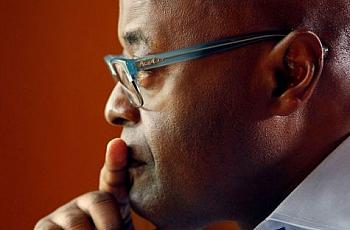
Today, nearly 37 years later, the call seems exceptionally ordinary: Investigate a noise complaint from a resident at an apartment building at North 10th and West Walnut streets.
James E. Causey’s reporting on this project was completed with the support of a USC Annenberg Center for H
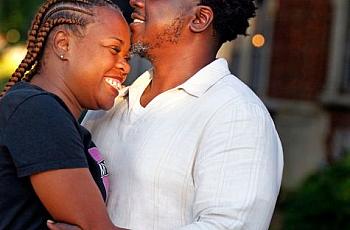
Spoken word artists Tina Nixon and Kwabena Antoine Nixon have helped people enveloped in trauma in Milwaukee open up about their innermost fears.

While he earned $20 for four hours of weed-pulling and trash-picking, Maleak was there for something else: Support. Guidance. A father figure.
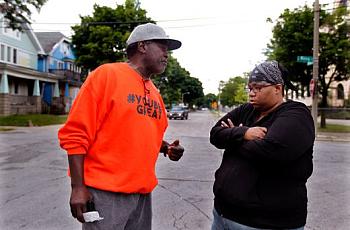
In Milwaukee, therapists, social workers and criminal justice reform officials are focusing new attention on the well-being of those who suffer traumatic experiences as children.
James E. Causey’s reporting on this project was completed with the support of a USC Annenberg Center for Health

An actor-turned-activist founded the "We Got This" program five years ago. It is aimed squarely at boys like Maleak, who has a father in prison, a mother struggling to make ends meet and, often, lots of pent-up anger.
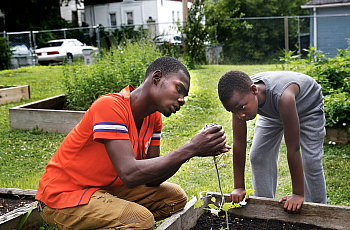
“I try to provide them with the tools to grow, so they can make that decision not to jump in that (stolen car), and not to pick up that gun, because they need to make those decisions when no one else is around.”
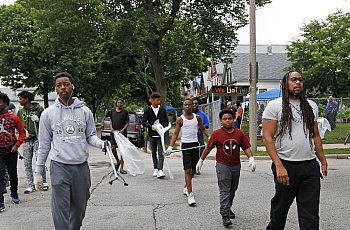
Milwaukee Journal Sentinel reporter James E. Causey kept a weekly journal during the summer of 2018, while he was reporting about the "We Got This" summer garden program in one of the city's most troubled neighborhoods. Here he shares some excerpts.
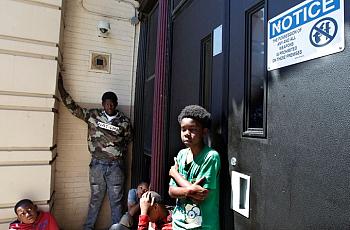
The 53206 ZIP code is one of the most troubled in the city.
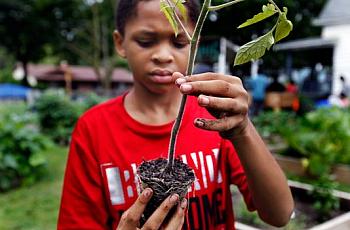
The community garden at the center of Andre Lee Ellis' "We Got This" mentoring program is one of dozens in Milwaukee. Many could use help — from raising money to sweat equity.
James E. Causey’s reporting on this project was completed with the support of a USC Annenberg Center for Healt
![[Photo by USDA via Flickr.]](jpg/unnamed_2115799.jpg?itok=znK4J-Rn)
Boys from one of the country’s most beleaguered neighborhoods show up to work four hours and earn $20 and life skills. Most have already experienced multiple traumas in their young lives.